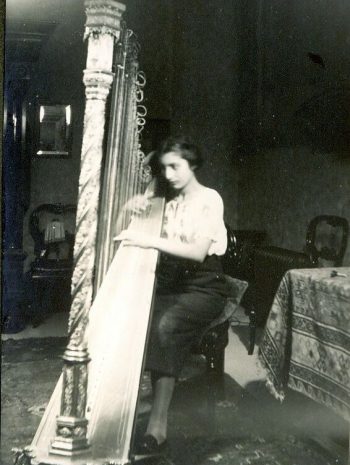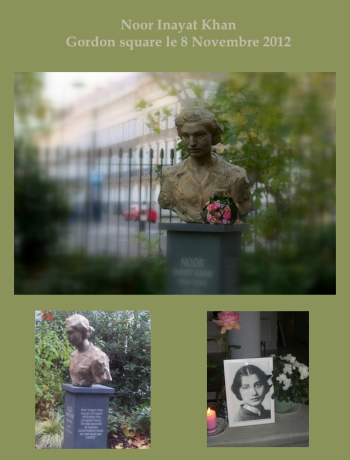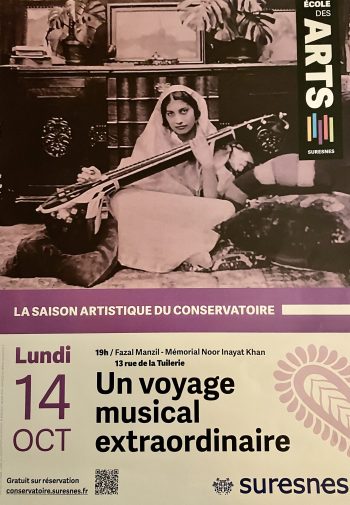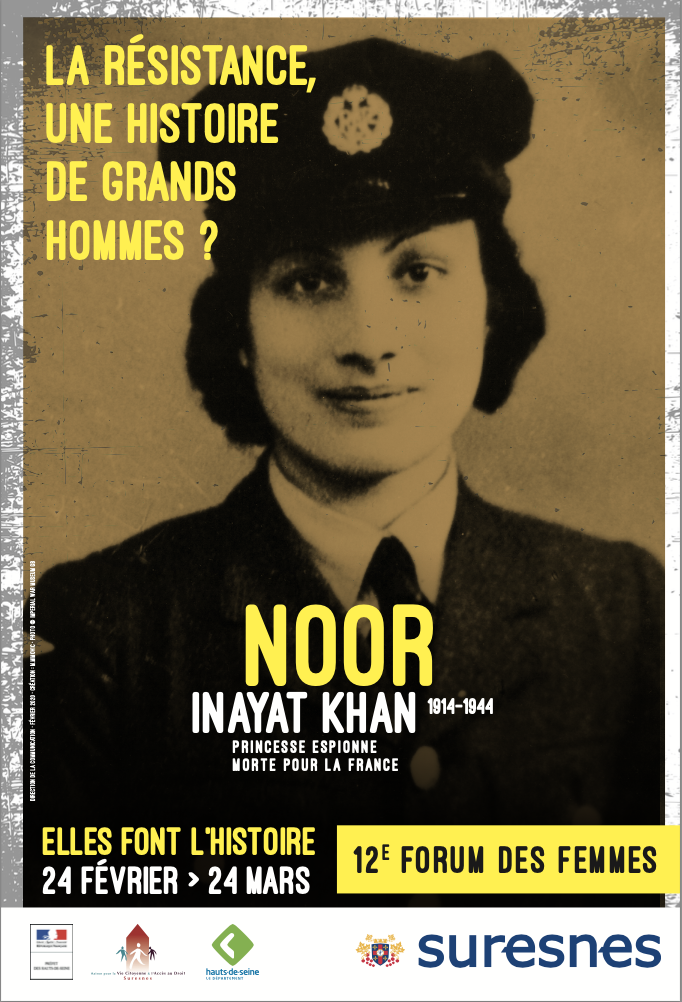Noor
INAYAT KHAN
A poet, musician and children’s author, Noor did not have the profile of a spy. But that’s exactly what she became: an undercover radio operator in France. With her iron will and indomitable courage, she was considered by the Gestapo to be one of the most dangerous enemies, in her active role, at the cost of her life, in the Liberation of France in 1944.
Several books and films retrace her story.
A cultured and sensitive young woman
Noor-un-Nisa, like her three brothers and sister, was educated in Suresnes and went on to study child psychology at the Sorbonne. A writer, poet and musician, she studied the harp with Nadia Boulanger, her teacher at the École Normale de musique in Paris.
A storyteller, she wrote a collection of stories, the Jakata tales, inspired by the legends of the Buddha’s past lives, which was published in 1939 by G. Harrap in London. She was asked by Radio-Paris to write stories for children. Her stories were also published in Le Figaro du Dimanche, and she launched a newspaper for young people, “Le bel âge”. She also wrote a play, Aede of the Ocean and Land, an interpretation of the Iliad and the Odyssey. Her works include the theme of the initiatory path, celebrating devotion, love and sacrifice.

The Spy
In 1940, with the German army about to enter Paris, Ameena Begum, Noor-un-Nisa, Vilayat and Khair-un-Nisa travelled to England to join the war effort. Although Sufis and followers of non-violence, Noor and Vilayat made a crucial decision that would change their lives.
Noor volunteered for the Women’s Auxiliary Air Force while Vilayat joined the Royal Navy. Noor trained as a radio operator and was recruited by SOE in 1943. The Special Operations Executive, created by Winston Churchill, was a British secret service supporting the French resistance. Although the life expectancy of a radio operator behind enemy lines was six weeks, Noor accepted the mission without a moment’s hesitation while refusing to carry a weapon.
In June 1943, under the code name Madeleine, Noor was sent to France as radio operator. After the collapse of the Prosper network, which she was to join, she replaced the 6 radio operators arrested by the Gestapo, remaining the only and last contact between London and the Resistance. For weeks on end she continued, with courage and tenacity, to transmit messages every day, to help Allied pilots and soldiers escape and to deliver arms and money to the French Resistance fighters.
In September 1943 she was betrayed, captured and imprisoned. After a period of isolation and torture, during which none of her contacts were revealed, she was transferred to Dachau Concentration Camp and shot in September 1944. According to the testimony of one prisoner, her last word was “Freedom.”
Noor Inayat-Khan was awarded the Croix de Guerre by France and the George Cross of the Order of the British Empire by the United Kingdom.
A statue of her was unveiled by Princess Anne in November 2012 in London’s Gordon Square, and a square and school in Suresnes are named after her.

Partnership with Suresnes City Council
Every year a tribute is paid to Noor Inayat-Khan during the May 8th commemorations.
1997 – Noor commemorative plaque laid at Fazal Manzil
2011 – Inauguration of Place Madeleine in Suresnes
2013 – Exhibition at the Suresnes Médiathèque
2013 – Opening of the Noor Inayat Khan – Madeleine school in Suresnes
2015 – Inauguration of a bust in the school
2015 – One of the Jakata tales performed at Fazal Manzil by the school’s pupils
2022 – The 2013 exhibition tours to schools in Suresnes
2024 – Concert organised at Fazal Manzil by the Conservatoire of Suresnes
Historically, as the residence was private and family-run, the L’Universel association was the privileged link with the township’s authorities. In the new context of Sufi Suresnes, a partnership and globalisation is being put in place, with each partner being able to interact directly with the township, knowing that a coordination has been put in place between the partners.





